Last week was all about the HE Bill (which meant it was also about TEF, fees, student loans, immigration and Brexit) – and the Autumn Statement:
Student information – the QAA have announced a consultation on their draft guidance to institutions on student information following the Competition and Markets Authority guidance in 2015. It closes on 7th December.
NSS boycott: After the National Union of Students had appeared to back away from a national boycott of the NSS, saying that they would support individual unions and only call a national boycott as a “last resort”, on Wednesday they announced that they would be calling for it – as trailed in the Guardian on Tuesday– because of the link between the TEF and fees. It will be interesting to see how this plays out when the HE Bill is debated in the Lords next week.
HE and Research Bill – The Higher Education and Research Bill passed its third reading and report stage on Tuesday – read my separate blog here. The Lords second reading is on 6th December and a lively debate is expected there, probably on many of the same issues as were discussed in the Commons, although it would be good if more of the actual Bill could be discussed. As expected, in the Commons the (helpful and non-controversial) government amendments were all passed and most of the rest were not discussed – and none were passed – but the debated amendments were mostly about TEF, student loans, the impact of immigration changes and Brexit – all very interesting but not directly relevant to the Bill – and all that were pushed to a vote were dismissed. The official report of proceedings is here and the Dods summary of the debate with the key points made by the participants is attached – ignore the off-putting first page – it gets better. UUK’s note on concerns and proposed changes to the Bill was published just before – these changes will now all be dependent on lobbying in the Lords. UUK published a briefing for MPs attached to a blog on what they want to see changed.
Maintenance Grants and Loans – this is likely to remain a hot topic in the HE Bill debate, the House of Commons library published a short and interesting briefing in October on the impact of the changes. These briefings are factual and politically neutral so are a helpful reference point. It summarises how the position has changed and flags that while debt will go up, affecting students from disadvantaged backgrounds the most, actual repayments will not go up anywhere near as much, because many of the additional loans for maintenance will not be repaid (they are repaid after tuition fee loans). Of course, high earners from disadvantaged backgrounds will have to repay significantly more. It also looks at how much the change from grants to loans will affect participation and concludes that it is likely that it will.
A reminder that there are currently consultations on maintenance loans for part-time students and also on loans for PGRs – please contact policy@bournemouth.ac.uk if you want to comment on those.
And Research Professional noted that the government is still planning to sell the student loan book – starting in 2017.
Education and Social Mobility – A House of Commons briefing pack was also produced ahead of the debate on education and social mobility on Tuesday (you can read the debate on They Work for You). It summarises the recent Social Mobility Commission State of the Nation report and the position in relation to FE and schools and highlights falls in spending on further education. It provides a very useful reading list for those of you interested in this area.
International staff and students and immigration controls – On international students, there was an interesting response in the HE Bill debate from Jo Johnson that caused a ripple on twitter – after all the concern about TEF being used to limit international student numbers (thanks to Wonkhe for finding the quote on Hansard). The Minister is taking an unorthodox and refreshing approach – apart from telling everyone to calm down (just before the quote below) – he has been speaking widely about how welcome international students are and even appeared at the Times Higher Education awards last night and repeated the message.
“We have no plans to introduce any cap on the number of non-EU students who can come to the UK to study. No decisions have been made on tailoring or differentiating non-EU student migration rules on the basis of the quality of the higher education institution, or on how that might be achieved…
“We want compliance to be a strong feature of our system. It is important that the sector should do all it can to be compliant with Home Office regulations… [the Home Secretary] mentioned compliance and quality. High-quality institutions are compliant institutions; they are one and the same.”
There are stories that the consultations on immigration (on rules for employers and on international students) may not now come out until the New Year – we were expecting it/them in the next couple of weeks.
Another House of Commons briefing paper was published on the “effect of exiting the EU on higher education” last week ahead of one of the many debates on this topic which is being debated everywhere including in the HE bill debates as noted above. It doesn’t change anything but if you are trying to catch up on any of the specific issues e.g. research or students it is a very useful reference source with helpful links. Interestingly it doesn’t talk about EU staff at universities – something which is often missed because it is not a specifically HE issue – but one that is very important – although it does note a number of parliamentary questions that cover staff including the recent reassurances from Jo Johnson that staff should be able to stay as long as the EU reciprocates.
We are also awaiting the next steps in the Education Committee inquiry into Brexit – the chair tweeted how important this was but at the time of writing they hadn’t published all the evidence.
Autumn Statement – Theresa May made a speech to the CBI pre-announcing the investment in research and development in the Autumn Statement on Wednesday. UUK have published a blog on the Autumn Statement, which contained few surprises as most of the news had been trailed – and apart from letting fees (which may affect the local accommodation market for students) the only really interesting bit for universities is the £2bn investment in R&D. This is new money, but it sounds as if it will be very targeted to innovation/commercialisation projects and science in industry – so concerns remain about the risk to research funding more widely following Brexit.
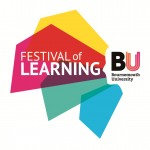 Don’t miss our drop-in sessions where we can offer you support in planning your event for Festival of Learning 2017.
Don’t miss our drop-in sessions where we can offer you support in planning your event for Festival of Learning 2017.
 Did you know that more people play disability football than rugby league in the UK?
Did you know that more people play disability football than rugby league in the UK?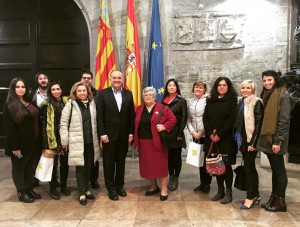
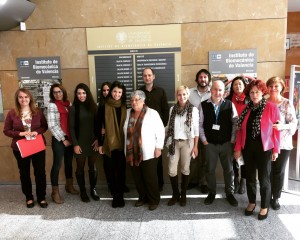
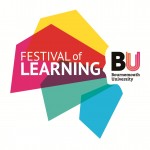 The deadline to submit your proposals for
The deadline to submit your proposals for 
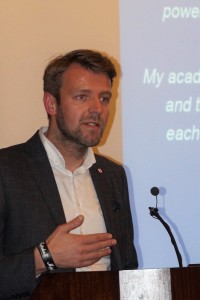 Paweł Surowiec
Paweł Surowiec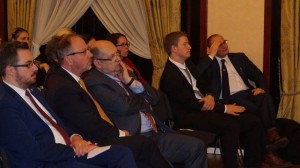 the Centre for Media and Politics, talks by Dr Paweł Surowiec of Bournemouth University and Dr Keith Dinnie of Middesex University as well as the Q&A session with the both panelists. The event was mainly attended by academics analysing diplomacy and statecraft, London-based public diplomats (from, among others, German, Slovakian, Polish, Indonesian, Ethiopian, Canadian embassies and cultural diplomacy institutes) as well as by the Faculty’s fellows and students reading for their degrees on BA (Hons) Politics and MA International Political Communication.
the Centre for Media and Politics, talks by Dr Paweł Surowiec of Bournemouth University and Dr Keith Dinnie of Middesex University as well as the Q&A session with the both panelists. The event was mainly attended by academics analysing diplomacy and statecraft, London-based public diplomats (from, among others, German, Slovakian, Polish, Indonesian, Ethiopian, Canadian embassies and cultural diplomacy institutes) as well as by the Faculty’s fellows and students reading for their degrees on BA (Hons) Politics and MA International Political Communication.
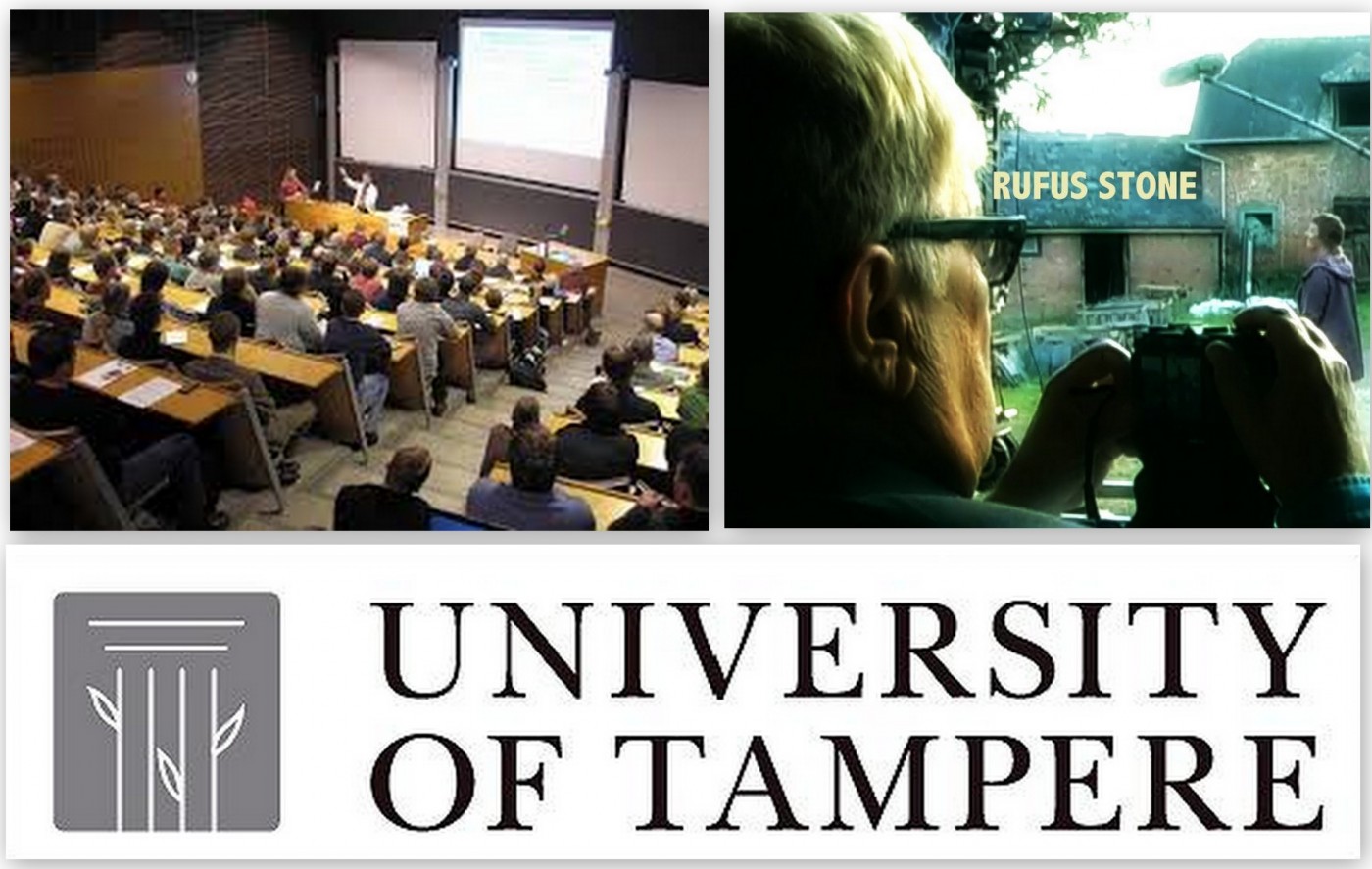











 1 WEEK REMAINING- Postgraduate Research Experience Survey (PRES) 2024
1 WEEK REMAINING- Postgraduate Research Experience Survey (PRES) 2024 Conversation article: How 2-Tone brought new ideas about race and culture to young people beyond the inner cities
Conversation article: How 2-Tone brought new ideas about race and culture to young people beyond the inner cities Upcoming 3C Event – PGR Culture, Community & Cake
Upcoming 3C Event – PGR Culture, Community & Cake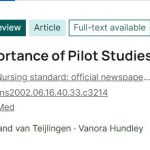 Paper with 160,000 reads
Paper with 160,000 reads Apply for up to £1,000 to deliver an event and take part in a national festival of public engagement with research
Apply for up to £1,000 to deliver an event and take part in a national festival of public engagement with research MSCA Postdoctoral Fellowships 2024
MSCA Postdoctoral Fellowships 2024 Horizon Europe News – December 2023
Horizon Europe News – December 2023